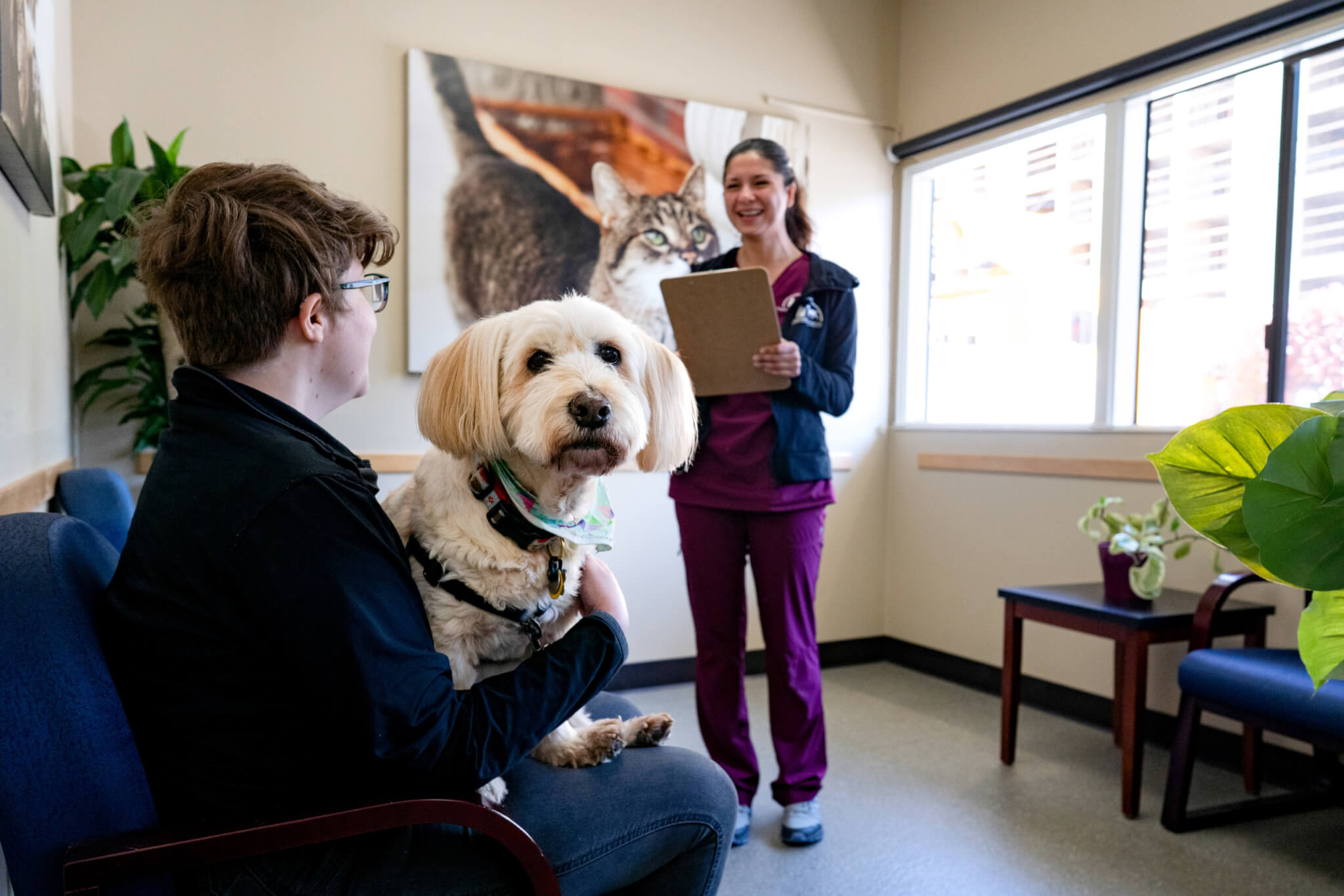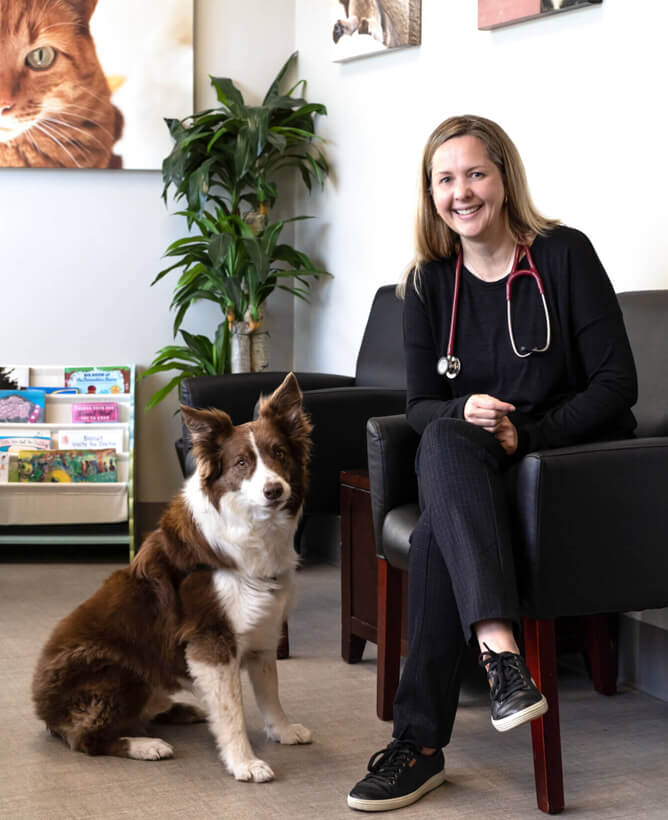
Prevention starts with owner education and regular professional veterinary visits according to the life stage of the dog.
We think of these stages as puppyhood, adulthood, senior years, and geriatric (super senior) period. As dogs age, the need for physical examinations and consultations with a professional veterinary health care worker vary. Furthermore, different stages of your dog’s life warrant a different focus for both the veterinary team and owner alike.
Puppyhood:
Several exams during puppyhood are typically needed to monitor your young dog’s physical and behavioral development. During these exams, emphasis will be placed on topics such as parasite prevention, behavioral and physical development, vaccinations, and nutrition. Getting you and your pup off to a great start is a goal during this important year of life. Puberty and sterilization options are typically covered as well.
Adulthood:
Annual examinations after your pet’s first year play an important role in the continuation of good health. Many diseases do not produce observable symptoms, making their clinical signs difficult to detect. The areas of focus during this stage of life are: maintaining proper oral health, preventing parasites and infectious diseases, and maintaining an ideal weight and body condition.
Senior:
Senior stage dogs may vary in age according to the size/weight of your pet. Large dogs age more rapidly and begin to warrant special health monitoring as early as seven years old. Other small breed dogs may not reach such status until 10 years. A senior dog should be monitored more closely in order to detect age-related problems earlier and help owners to manage or solve health issues. Typically, we recommend healthy senior dogs maintain their annual exam schedule to offer owner education and routine early detection health screening tests.
Geriatric:
The super senior or geriatric dog also needs semi-annual visits as these patients are often in need of special care and possible ongoing medical treatment. These visits allow the doctor to monitor current medical issues, manage symptoms and ensure the highest quality of life possible for your aging friend. Dogs in this stage of life are monitored more comprehensively through blood tests, blood pressure measurements, and urine evaluations.

Northwest Veterinary Hospital
Call/Text: 206-545-4255
Fax: 206-545-4205
